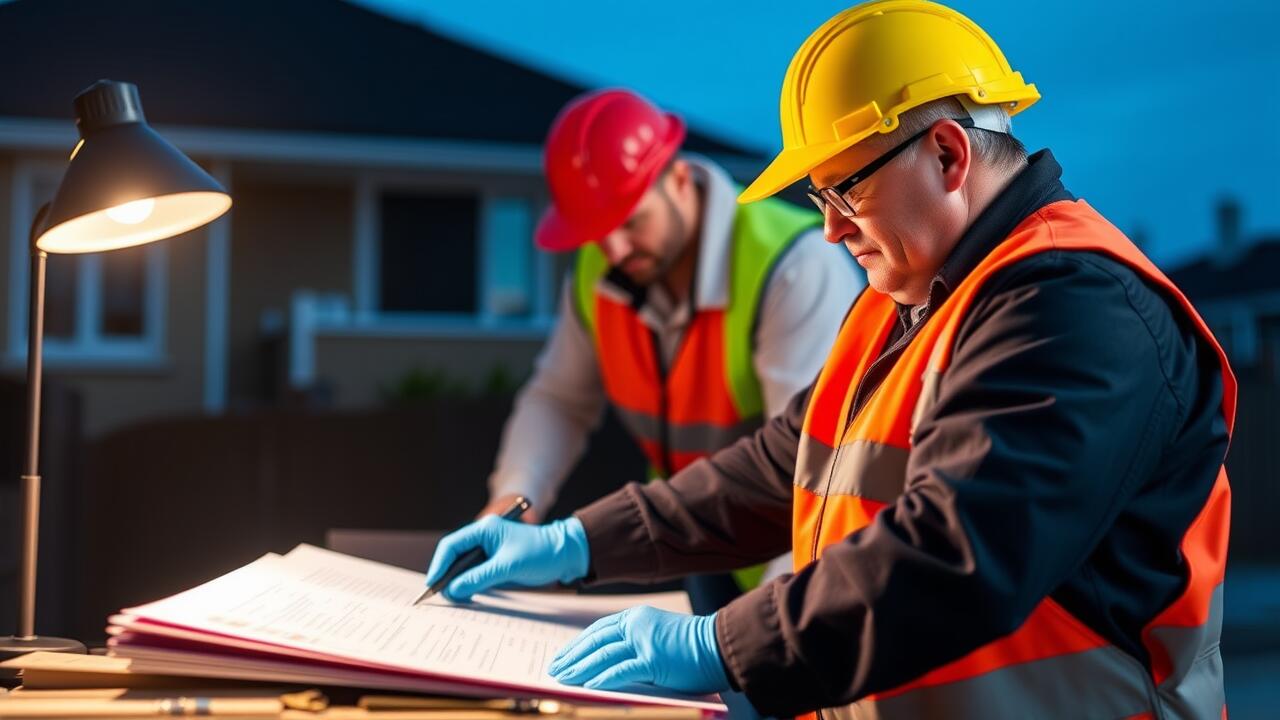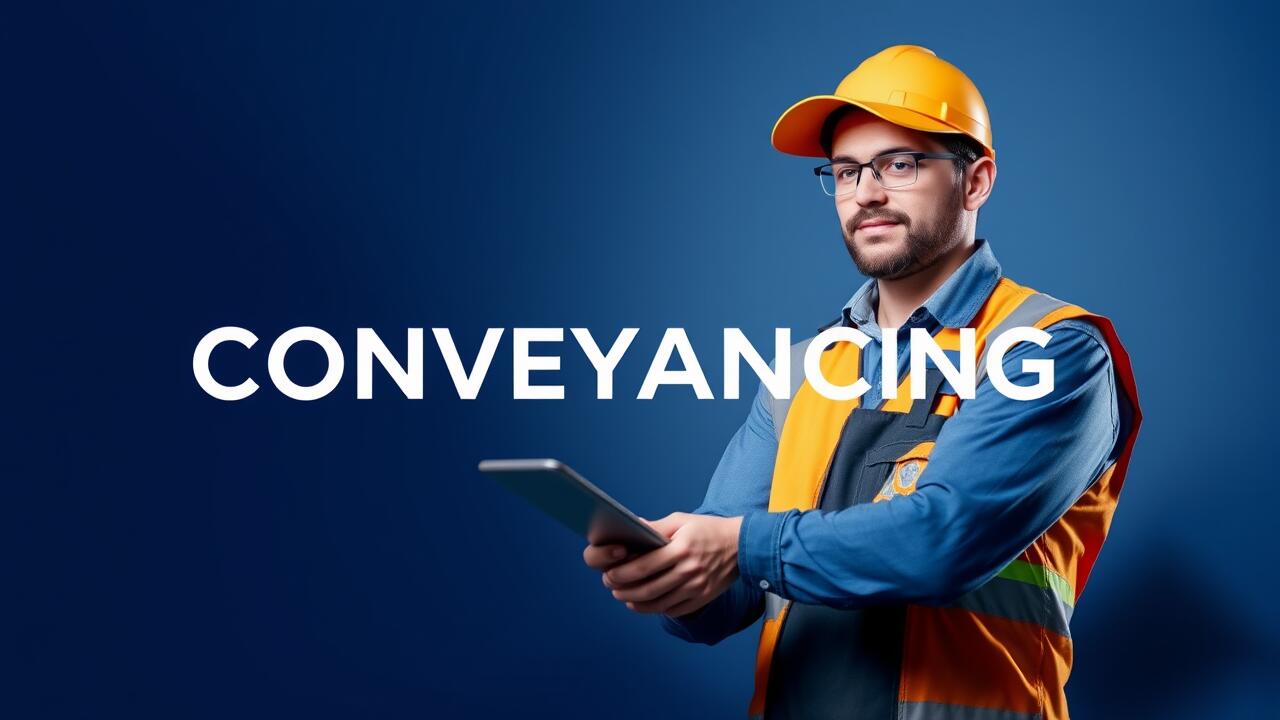
Steps Involved in the Conveyancing Process
The conveyancing process in Victoria involves several key steps that must be followed to ensure a successful property transfer. Initially, both buyers and sellers should review the contract of sale, which outlines the terms and conditions of the transaction. It's crucial to conduct thorough searches and obtain relevant documents, such as property certificates. These documents provide necessary information about zoning, encumbrances, and other legalities associated with the property.
After the contract has been reviewed, the next phase includes negotiating terms and conditions, which may lead to amendments if needed. Once all parties finalise the agreement, the settlement process begins. This stage involves the transfer of funds and the official handover of the property, requiring careful coordination and attention to detail. Proper management of these steps can streamline the conveyancing process, minimising potential delays or complications.
A Breakdown of the Main Stages
The conveyancing process involves several key stages that are essential for a successful property transaction. Initially, the process begins with the preparation of legal documents, such as contracts of sale and vendor statements. These documents require accurate information regarding the property, including its title information and any encumbrances. After documentation, the exchange of contracts takes place, marking the formal agreement between the buyer and seller. This stage also includes a cooling-off period, allowing parties to reconsider their commitment.
Following the exchange, the next stage involves conducting property inspections and coordinating necessary searches to uncover any legal issues. These searches may include land title, zoning regulations, and council approvals. Once all due diligence is completed, the settlement process begins. This final stage involves the transfer of ownership, completion of financial transactions, and registration of the property with the relevant authority. Each of these stages is critical to ensure that the conveyancing process is handled efficiently and legally.
Tools and Resources for DIY Conveyancers
DIY conveyancers can benefit from various tools and resources designed to simplify the conveyancing process. One popular option is online conveyancing services, which offer comprehensive platforms that guide users through each stage of the property transfer. These services often provide templates for essential documents, calculators for fee estimations, and checklists to ensure all steps are completed accurately.
In addition to these digital resources, there are several software programs specifically tailored for conveyancing tasks. These applications can assist with managing important dates, drafting contracts, and tracking the progress of the transaction. Furthermore, engaging with local conveyancing forums or support groups can offer valuable insights and tips from others who have successfully completed DIY conveyancing projects.
Useful Software and Online Services
A variety of software and online services can simplify the conveyancing process for individuals tackling it independently. Programs designed for real estate transactions often offer templates and checklists tailored to the specific requirements of Victoria. These tools can help ensure that all vital legal documents are in order and submitted on time. Many platforms also provide step-by-step guidance to assist DIY conveyancers in navigating complex procedures.
In addition to dedicated conveyancing software, online resources such as forums and educational websites can be invaluable. These platforms often feature advice from experienced conveyancers and homeowners who have gone through the process themselves. Engaging with these communities can provide insights into common pitfalls and best practices, enhancing a whole new conveyancing experience. Utilising such resources can empower individuals to manage their transactions with greater confidence.
When to Consider Professional Help
Navigating the conveyancing process can be complex, particularly for those unfamiliar with property law and local regulations. If you encounter issues such as disputes over property boundaries, unclear title searches, or complicated negotiations with the other party, seeking professional help is often advisable. Understanding the legal implications of these matters is crucial, and a qualified conveyancer can provide expertise that ensures your interests are protected.
Another indicator that you may need expert assistance involves time constraints. Conveyancing often involves tight deadlines for submissions and various legal obligations. If you find yourself pressed for time or overwhelmed by the requirements, it may be prudent to engage a professional. This can alleviate stress and help ensure that all elements of the conveyancing process are handled correctly and efficiently.
Indicators That You Need Expert Assistance
Navigating the complexities of conveyancing can be challenging, particularly for those unfamiliar with legal processes and requirements. If you encounter issues such as unclear property titles or unresolved disputes over property boundaries, it may indicate that professional assistance is necessary. Complications arising from these matters can lead to significant delays and financial repercussions, underscoring the importance of expert guidance.
Additionally, if you find yourself overwhelmed by the paperwork or unsure about specific legal obligations related to the sale or purchase, seeking the help of a professional can provide much-needed clarity. A qualified conveyancer has the expertise to address questions that arise throughout the transaction, ensuring compliance with all regulations. Their experience can also facilitate smoother negotiations and help avoid potential pitfalls that may arise in more complex situations.
FAQS
Can I legally do my own conveyancing in Victoria?
Yes, it is legal to handle your own conveyancing in Victoria, provided you follow all relevant laws and regulations. However, it’s important to ensure you fully understand the process and requirements involved.
What are the main steps involved in the conveyancing process?
The main steps in the conveyancing process include preparing the Contract of Sale, conducting property searches, exchanging contracts, settling the sale, and registering the property transfer with Land Use Victoria.
What tools and resources are available for DIY conveyancers in Victoria?
DIY conveyancers can use various tools and resources, including online conveyancing software, legal guides, and templates for contracts and notices. Websites and forums dedicated to property transactions can also provide useful information.
When should I consider hiring a professional conveyancer?
You should consider hiring a professional conveyancer if you encounter complex legal issues, if you're unfamiliar with property law, or if you're dealing with particularly high-value transactions. Their expertise can help prevent costly mistakes.
Are there any risks associated with doing my own conveyancing?
Yes, there are risks involved in DIY conveyancing, including the potential for errors in legal documents, missing deadlines, or failing to complete necessary searches. These mistakes can lead to financial loss, so it’s crucial to be well-informed and cautious.


